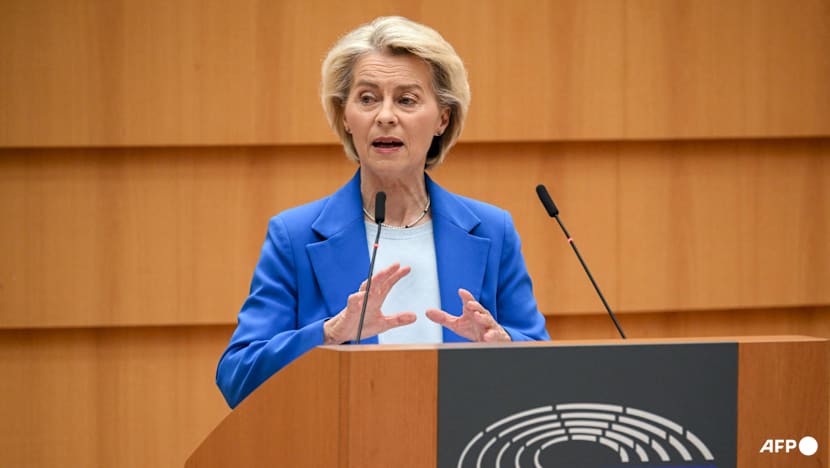EU chief insists using Russian assets best way to fund Ukraine

European Commission President Ursula von der Leyen delivers her speech during a debate on the new 2028-2034 Multi-annual Financial Framework at the European Parliament in Brussels on Nov 12, 2025. (File photo: AFP/Nicolas Tucat)
BRUSSELS: EU chief Ursula von der Leyen insisted on Thursday (Nov 13) that using frozen Russian assets to fund a new loan was the "most effective way" to finance Ukraine, as she laid out other options after opposition from Belgium.
The 27-nation bloc is scrambling for funds to help Kyiv plug looming budget black holes as Russia's war drags on towards a fourth year.
Von der Leyen's executive has put forward a plan to use Russian central bank assets immobilised in Belgium to generate a €140 billion (US$163 billion) "reparations loan" for Ukraine.
But that has so far faced opposition from the Belgian government which fears it could face legal reprisals from Moscow.
"We are working closely with Belgium, and all member states, on options," von der Leyen told EU lawmakers.
She remained adamant the frozen assets plan - under which the EU "gives a loan to Ukraine, that Ukraine pays back if Russia pays reparations" - remains the best choice.
"This is the most effective way to sustain Ukraine's defence and its economy. And the clearest way to make Russia understand that time is not on its side," the European Commission president said.
Von der Leyen set out two other options if there was no green light on that plan.
The first was to use wiggle room in the EU's central budget to raise money on capital markets, and the second was that member states agree to raise the money together themselves.
EU officials and diplomats warn that both plans would incur greater costs for countries at a time when national budgets are under strain.
Diplomats said that by setting them out, von der Leyen was looking to pile pressure on Belgium to agree to tap the frozen assets.
EU officials say they want to seal a deal on a financing plan for Ukraine at a summit of the bloc's leaders in December.














